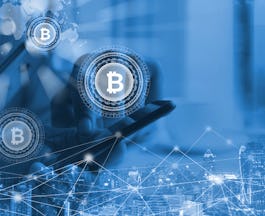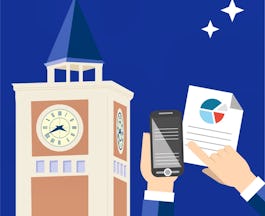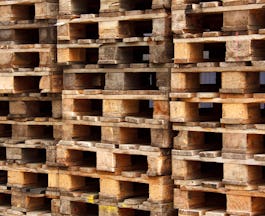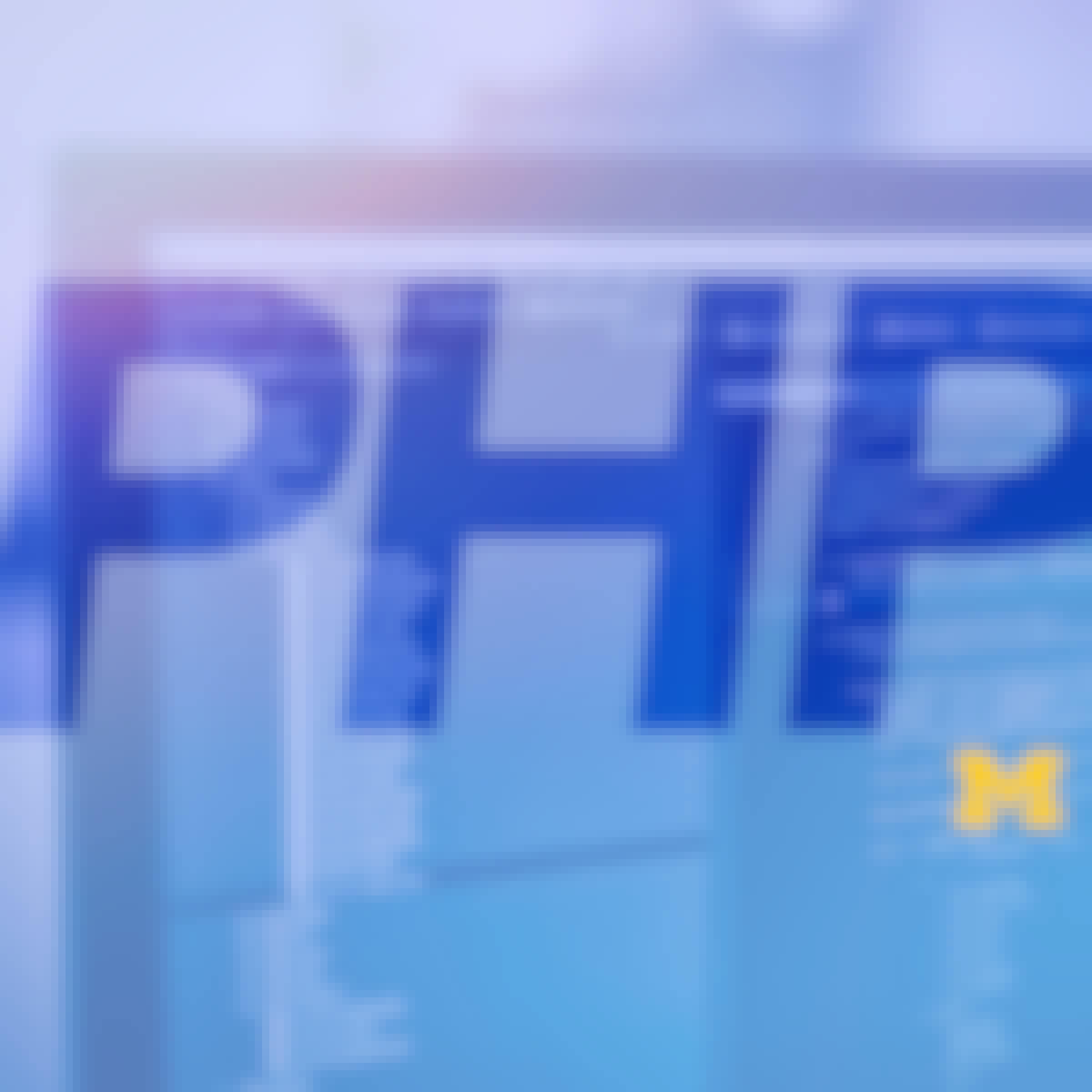Filter by
The language used throughout the course, in both instruction and assessments.
840 results for "blockchain"

University of Illinois at Urbana-Champaign
Skills you'll gain: Leadership and Management, Accounting, Financial Accounting, Finance, Financial Analysis, Business Analysis, Strategy, Marketing, Financial Management, Critical Thinking, Decision Making, Data Analysis, General Accounting, Strategy and Operations, Market Analysis, Generally Accepted Accounting Principles (GAAP), Taxes, Entrepreneurship, Management Accounting, Investment Management, Mergers & Acquisitions, Risk Management, Communication, Market Research, Regulations and Compliance, Cost Accounting, Problem Solving, Digital Marketing, Account Management, Accounts Payable and Receivable, Corporate Accouting, Marketing Management, Media Strategy & Planning, Business Development, Business Process Management, Data Management, Exploratory Data Analysis, Statistical Programming, Probability & Statistics, Data Visualization, Innovation, Audit, Leadership Development, Planning, Business Transformation, Banking, Performance Management, Business Intelligence, Cash Management, Product Strategy, Python Programming, Sales, Statistical Analysis, Social Media, Brand Management, Business Psychology, Customer Analysis, Business Communication, Creativity, Organizational Development, Product Management, Research and Design, Securities Trading, Culture, Data Analysis Software, Machine Learning, Advertising, Behavioral Economics, Customer Relationship Management, Human Learning, People Analysis, Process Analysis, Professional Development, R Programming, Business Design, Correlation And Dependence, General Statistics, Influencing, People Management, Product Marketing, Interactive Data Visualization, Change Management, Conflict Management, Inventory Management, Marketing Design, Operational Analysis, Basic Descriptive Statistics, Project Management, Advertising Sales, Collaboration, Product Development, Regression, Statistical Machine Learning, Negotiation, Benefits, Big Data, Budget Management, Data Model, Emotional Intelligence, Human Resources, Operations Management, Plot (Graphics), Data Visualization Software, Design and Product, Probability Distribution, Statistical Tests, Storytelling, Algorithms, Computer Programming, Data Mining, Employee Relations, Securities Sales, Data Structures, Machine Learning Algorithms, User Research, Visualization (Computer Graphics), Contract Management, Extract, Transform, Load, Supplier Relationship Management, Databases, Entrepreneurial Finance, Forecasting, Game Theory, Supply Chain and Logistics, Visual Design, Systems Design, Accounting Software, Econometrics, Natural Language Processing, SQL, Theoretical Computer Science, BlockChain, Data Architecture, Microsoft Excel

University of Illinois at Urbana-Champaign
Skills you'll gain: Accounting, Leadership and Management, Financial Accounting, Financial Analysis, Finance, Strategy, Business Analysis, Financial Management, General Accounting, Marketing, Strategy and Operations, Critical Thinking, Data Analysis, Generally Accepted Accounting Principles (GAAP), Decision Making, Market Analysis, Management Accounting, Taxes, Investment Management, Risk Management, Entrepreneurship, Mergers & Acquisitions, Cost Accounting, Account Management, Market Research, Media Strategy & Planning, Communication, Accounts Payable and Receivable, Regulations and Compliance, Statistical Programming, Probability & Statistics, Audit, Corporate Accouting, Problem Solving, Banking, Business Development, Business Process Management, Business Transformation, Cash Management, Planning, Python Programming, Digital Marketing, Performance Management, Product Strategy, Exploratory Data Analysis, Leadership Development, Marketing Management, Sales, Brand Management, Machine Learning, Statistical Analysis, Innovation, Data Visualization, R Programming, Social Media, Business Design, Securities Trading, Correlation And Dependence, General Statistics, Organizational Development, Business Intelligence, Data Analysis Software, Inventory Management, Research and Design, Basic Descriptive Statistics, Project Management, Customer Analysis, Data Management, Operational Analysis, People Management, Product Development, Product Marketing, Regression, Statistical Machine Learning, Advertising, Behavioral Economics, Budget Management, Business Communication, Conflict Management, Interactive Data Visualization, Benefits, Business Psychology, Change Management, Culture, Customer Relationship Management, Design and Product, Operations Management, Plot (Graphics), Statistical Tests, Algorithms, Computer Programming, Human Resources, Influencing, Probability Distribution, Machine Learning Algorithms, Collaboration, Data Model, Marketing Design, Extract, Transform, Load, Negotiation, Data Mining, Data Visualization Software, Securities Sales, Visualization (Computer Graphics), Systems Design, Visual Design, Data Structures, Entrepreneurial Finance, Forecasting, Game Theory, Supply Chain and Logistics, User Research, Accounting Software, Databases, Econometrics, Natural Language Processing, Storytelling, SQL, Theoretical Computer Science, BlockChain, Data Architecture, Microsoft Excel

New York Institute of Finance
Skills you'll gain: BlockChain, Finance, Supply Chain Systems, Supply Chain and Logistics

Universidad Austral
Skills you'll gain: BlockChain, Cryptography, Finance, FinTech, Algorithms, Culture, E-Commerce, Distributed Computing Architecture, Innovation, System Security

Skills you'll gain: Cloud Computing, Cloud Platforms, Google Cloud Platform, Leadership and Management

Rutgers the State University of New Jersey
Skills you'll gain: Inventory Management, Leadership and Management, Material Handling, Operations Management, Planning, Strategy and Operations, Supplier Relationship Management, Supply Chain Systems, Supply Chain and Logistics, Transportation Operations Management, Warehouse Management

University of Illinois at Urbana-Champaign
Skills you'll gain: Leadership and Management, Accounting, Financial Accounting, Finance, Financial Analysis, Business Analysis, Strategy, Marketing, Financial Management, Critical Thinking, Decision Making, Data Analysis, General Accounting, Strategy and Operations, Market Analysis, Generally Accepted Accounting Principles (GAAP), Taxes, Entrepreneurship, Management Accounting, Investment Management, Mergers & Acquisitions, Risk Management, Communication, Market Research, Regulations and Compliance, Cost Accounting, Problem Solving, Digital Marketing, Account Management, Accounts Payable and Receivable, Corporate Accouting, Marketing Management, Media Strategy & Planning, Business Development, Business Process Management, Data Management, Exploratory Data Analysis, Statistical Programming, Probability & Statistics, Data Visualization, Innovation, Audit, Leadership Development, Planning, Business Transformation, Banking, Performance Management, Business Intelligence, Cash Management, Product Strategy, Python Programming, Sales, Statistical Analysis, Social Media, Brand Management, Business Psychology, Customer Analysis, Business Communication, Creativity, Organizational Development, Product Management, Research and Design, Securities Trading, Culture, Data Analysis Software, Machine Learning, Advertising, Behavioral Economics, Customer Relationship Management, Human Learning, People Analysis, Process Analysis, Professional Development, R Programming, Business Design, Correlation And Dependence, General Statistics, Influencing, People Management, Product Marketing, Interactive Data Visualization, Change Management, Conflict Management, Inventory Management, Marketing Design, Operational Analysis, Basic Descriptive Statistics, Project Management, Advertising Sales, Collaboration, Product Development, Regression, Statistical Machine Learning, Negotiation, Benefits, Big Data, Budget Management, Data Model, Emotional Intelligence, Human Resources, Operations Management, Plot (Graphics), Data Visualization Software, Design and Product, Probability Distribution, Statistical Tests, Storytelling, Algorithms, Computer Programming, Data Mining, Employee Relations, Securities Sales, Data Structures, Machine Learning Algorithms, User Research, Visualization (Computer Graphics), Contract Management, Extract, Transform, Load, Supplier Relationship Management, Databases, Entrepreneurial Finance, Forecasting, Game Theory, Supply Chain and Logistics, Visual Design, Systems Design, Accounting Software, Econometrics, Natural Language Processing, SQL, Theoretical Computer Science, BlockChain, Data Architecture, Microsoft Excel

New York Institute of Finance
Skills you'll gain: Finance, Supply Chain Systems, Supply Chain and Logistics, Accounts Payable and Receivable, Payments, Cash Management, Financial Accounting, Financial Management, Leadership and Management, Supplier Relationship Management

University of Illinois at Urbana-Champaign
Skills you'll gain: Leadership and Management, Accounting, Financial Analysis, Finance, Financial Accounting, Financial Management, Strategy, Strategy and Operations, Business Analysis, General Accounting, Marketing, Market Analysis, Decision Making, Management Accounting, Investment Management, Generally Accepted Accounting Principles (GAAP), Cost Accounting, Data Analysis, Critical Thinking, Account Management, Risk Management, Entrepreneurship, Accounts Payable and Receivable, Market Research, Banking, Taxes, Corporate Accouting, Business Development, Cash Management, Python Programming, Probability & Statistics, Business Transformation, Business Process Management, Statistical Programming, Innovation, Media Strategy & Planning, Leadership Development, Performance Management, Planning, Sales, Business Design, Marketing Management, Problem Solving, Product Strategy, Mergers & Acquisitions, Securities Trading, Brand Management, Communication, Organizational Development, Machine Learning, Regulations and Compliance, Research and Design, Project Management, Correlation And Dependence, Inventory Management, Operational Analysis, People Management, Product Development, Statistical Analysis, Budget Management, Basic Descriptive Statistics, General Statistics, Behavioral Economics, Change Management, Culture, Design and Product, Operations Management, Product Marketing, Business Psychology, Computer Programming, Conflict Management, Exploratory Data Analysis, Human Resources, Probability Distribution, Digital Marketing, Business Intelligence, Collaboration, Customer Analysis, Data Analysis Software, Regression, Influencing, Negotiation, Audit, Data Mining, Marketing Design, Securities Sales, Social Media, Statistical Tests, Systems Design, Business Communication, R Programming, Statistical Machine Learning, Supply Chain and Logistics, Accounting Software, Algorithms, Data Visualization, Econometrics, Game Theory, Natural Language Processing, Plot (Graphics), Data Structures, Databases, Machine Learning Algorithms, SQL, Theoretical Computer Science, BlockChain, Microsoft Excel

Skills you'll gain: Cloud Applications, Cloud Computing, Computer Programming, IBM Cloud, Information Technology, Operating Systems, Project Management

University of Illinois at Urbana-Champaign
Skills you'll gain: Leadership and Management, Accounting, Finance, Financial Analysis, Financial Accounting, Business Analysis, Data Analysis, Strategy, Decision Making, Critical Thinking, Financial Management, Marketing, Strategy and Operations, Market Analysis, General Accounting, Taxes, Generally Accepted Accounting Principles (GAAP), Entrepreneurship, Investment Management, Management Accounting, Market Research, Communication, Risk Management, Mergers & Acquisitions, Problem Solving, Regulations and Compliance, Cost Accounting, Probability & Statistics, Data Management, Account Management, Digital Marketing, Business Development, Accounts Payable and Receivable, Corporate Accouting, Exploratory Data Analysis, Marketing Management, Statistical Programming, Business Process Management, Business Psychology, Media Strategy & Planning, Business Intelligence, Behavioral Economics, Culture, Data Visualization, Leadership Development, Audit, Business Transformation, Innovation, Planning, Statistical Analysis, Product Strategy, Research and Design, Banking, Customer Analysis, General Statistics, Organizational Development, Performance Management, Brand Management, Cash Management, Python Programming, Sales, Business Communication, People Analysis, R Programming, Social Media, Correlation And Dependence, Creativity, Data Analysis Software, Machine Learning, Product Management, Securities Trading, Human Learning, Professional Development, Advertising, Business Design, Customer Relationship Management, Process Analysis, Design and Product, Influencing, Regression, Operational Analysis, People Management, Product Development, Product Marketing, Econometrics, Interactive Data Visualization, Budget Management, Change Management, Conflict Management, Inventory Management, Marketing Design, Statistical Machine Learning, Basic Descriptive Statistics, Project Management, Advertising Sales, Big Data, Collaboration, Emotional Intelligence, Forecasting, Human Resources, Operations Management, Plot (Graphics), Probability Distribution, Benefits, Data Model, Product Design, Negotiation, Algorithms, Data Structures, Data Visualization Software, Statistical Tests, Storytelling, Computer Programming, Data Mining, Employee Relations, Product Lifecycle, Securities Sales, User Research, Visualization (Computer Graphics), Machine Learning Algorithms, Supplier Relationship Management, Supply Chain and Logistics, Contract Management, Extract, Transform, Load, Visual Design, Databases, Entrepreneurial Finance, Game Theory, Systems Design, Accounting Software, Natural Language Processing, SQL, Theoretical Computer Science, BlockChain, Data Architecture, Microsoft Excel

University of Michigan
Skills you'll gain: HTML and CSS, Web Development
Searches related to blockchain
In summary, here are 10 of our most popular blockchain courses
- Graduate Certificate in Strategic Leadership & Management: University of Illinois at Urbana-Champaign
- Value Chain Management Graduate Certificate: University of Illinois at Urbana-Champaign
- Future Development in Supply Chain Finance and Blockchain Technology: New York Institute of Finance
- La Disrupción del Blockchain: Universidad Austral
- Configuration Management and the Cloud: Google
- Supply Chain Logistics: Rutgers the State University of New Jersey
- CPA Pathways Graduate Certificate: University of Illinois at Urbana-Champaign
- Introduction to Supply Chain Finance & Blockchain Technology: New York Institute of Finance
- Entrepreneurship and Strategic Innovation Graduate Certificate: University of Illinois at Urbana-Champaign
- Information Technology (IT) Fundamentals for Everyone: IBM










